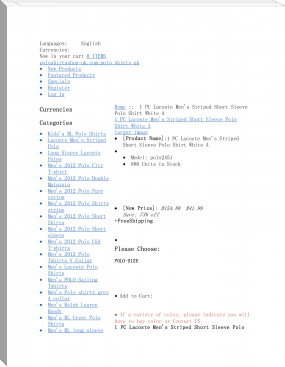The Ghost Kings - H. Rider Haggard (moboreader TXT) 📗

- Author: H. Rider Haggard
Book online «The Ghost Kings - H. Rider Haggard (moboreader TXT) 📗». Author H. Rider Haggard
"We are of the number of the wives of Ibubesi, the Lion," answered their spokeswoman, who held the little boy by the hand.
"Do you mean the Umlungu (that is, the white man), Ishmael?" he asked again.
"Whom else should we mean?" she answered. "I am his head wife, now that he has put away old Mami, and this is his son. If the light were stronger you would see that he is almost white," she added, with pride.
Mr. Dove knew not what to answer; this intelligence overwhelmed him, and he sat silent on his horse. The wives of Ishmael prepared to pass on to the mealie fields, then stopped, and began to whisper together. At length the mother of the boy turned and addressed him, while the others crowded behind her to listen.
"We desire to ask you a question, Teacher," she said, somewhat shyly, for evidently they knew well enough who he was. "Is it true that we are to have a new sister?"
"A new sister! What do you mean?" asked Mr. Dove.
"We mean, Teacher," she replied smiling, "that we have heard that Ibubesi is courting the beautiful Zoola, the daughter of your head wife, and we thought that perhaps you had come to arrange about the cattle that he must pay for her. Doubtless if she is so fair, it will be a whole herd."
This was too much, even for Mr. Dove.
"How dare you talk so, you heathen hussies?" he gasped. "Where is the white man?"
"Teacher," she replied with indignation, and drawing herself up, "why do you call us bad names? We are respectable women, the wives of one husband, as respectable as your own, although not so numerous, or so we hear from Ibubesi. If you desire to see him, he is in the big hut, yonder, with our youngest sister, she whom he married last month. We wish you good day, as we go to hoe our lord's fields, and we hope that when she comes, the Inkosazana, your daughter, will not be as rude as you are, for if so, how shall we love her as we wish to do?" Then wrapping her blanket round her with a dignified air, the offended lady stalked off, followed by her various "sisters."
As for Mr. Dove, who for once in his life was in a towering rage, he cut his horse viciously with the sjambok, or hippopotamus-hide whip, which he carried, and followed by his guides, galloped forward to a big hut in the centre of the kraal.
Apparently Ishmael heard the sound of his horse's hoofs, for as the missionary was dismounting he crawled out of the bee-hole of the hut upon his hands and knees, as a Kaffir does, followed by a young woman in the lightest of attire, who was yawning as though she had just been aroused from sleep. What is more, except for the colour of his skin, he was a Kaffir and nothing else, for his costume consisted of a skin moocha such as the natives wear, and a fur kaross thrown over his shoulders. Straightening himself, Ishmael saw for the first time who was his visitor. His jaw dropped, and he uttered an ejaculation that need not be recorded, then stood silent. Mr. Dove was silent also; for his wrath would not allow him to speak.
"How do you do, sir?" Ishmael jerked out at last. "You are an early visitor, and find me somewhat unprepared. If I had known that you were coming I would"--then suddenly he remembered his attire, or the lack of it, also his companion who was leaning on his shoulder, and peeping at the white man over it. Drawing the kaross tightly about him, he gave the poor girl a backward kick, and with a Kaffir oath bade her begone, then went on hurriedly: "I am afraid my dress is not quite what you are accustomed to, but among these poor heathens I find it necessary to conform more or less to their ways in order to gain their confidence and--um--affection. Will you come into the hut? My servant there will get you some tywala (Kaffir beer)--I mean some amasi (curdled milk) at once, and I will have a calf killed for breakfast."
Mr. Dove could bear it no longer.
"Ishmael, or Smith, or Ibubesi--whichever name you may prefer," he broke out, "do not lie to me about your servant, for now I know all the truth, which I refused to believe when my daughter and Nonha told it me. You are a black-hearted villain. But yesterday you dared to come and ask Rachel to marry you, and now I find that you are living--oh! I cannot say it, it makes me ashamed of my race. Listen to me, sir. If ever you dare to set foot in Ramah again, or to speak to my wife and daughter, the Kaffirs shall whip you off the place. Indeed," he added, shaking his sjambok in Ishmael's face, "although I am an older man than you are, were it not for my office I would give you the thrashing you deserve."
At first Ishmael had shrunk beneath this torrent of invective, but the threat of violence roused his fierce nature. His face grew evil, and his long black hair and beard bristled with wrath.
"You had best get out of this, you prayer-snuffling old humbug," he said savagely, "for if you stop much longer I will make you sing another tune. We have sea-cow whips here, too, and you shall learn what a hiding means, such a hiding that your own family won't know you, if you live to get back to them. Look here, I offered to marry your daughter on the square, and I meant what I said. I'd have got rid of all this black baggage, and she should have been the only one. Well, I'll marry her yet, only now she'll just take her place with the others. We are all one flesh and blood, black and white, ain't we? I have often heard you preach it. So what will she have to complain of?" he sneered. "She can go and hoe mealies like the rest."
As this brutal talk fell upon his ears Mr. Dove's reason departed from him entirely. After all, he was an English gentleman first, and a clergyman afterwards; also he loved his daughter, and to hear her spoken of like this was intolerable to him, as it would have been to any father. Lifting the sjambok he cut Ishmael across the mouth so sharply that the blood came from his lips, then suddenly remembering that this deed would probably mean his death, stood still awaiting the issue. As it chanced it did not, for the man, like most brutes and bullies, was a coward, as Rachel had already found out. Obeying his first impulse he sprang at the clergyman with an oath, then seeing that his two guides, who carried assegais, had ranged themselves beside him, checked himself, for he feared lest those spears should pierce his heart.
"You are in my house," he said, wiping the blood from his beard, "and an old man, so I can't kill you as I would anyone else. But you have made me your enemy now, you fool, and others can. I have protected you so far for your daughter's sake, but I won't do it any longer. You think of that when your time comes."
"My time, like yours, will come when God wills," answered Mr. Dove unflinchingly, "not when you or anyone else wills. I do not fear you in the least. Still, I am sorry that I struck you, it was a sin of which I repent as I pray that you may repent."
Then he mounted his horse and rode away from the kraal Mafooti.
* * * * *
When Mr. Dove reached Ramah he only said to Rachel that what she had heard was quite true, and that he had forbidden Ishmael the house. Of course, however, Noie soon learnt the whole story from the Kaffir guides, and repeated it to her mistress. To his wife, on the other hand, he told everything, with the result that she was very much disturbed. She pointed out to him that this white outcast was a most dangerous man, who would certainly be revenged upon them in one way or another. Again she implored him, as she had often done before, to leave these savage countries wherein he had laboured for all the best years of his life, saying that it was not right that he should expose their daughter to the risks of them.
"But," answered her husband, "you have often told me that you were sure no harm would come to Rachel, and I think that, too."
"Yes, dear, I am sure; still, for many reasons it does not seem right to keep her here." She did not add, poor, unselfish woman, that there was another who should be considered as well as Rachel.
"How can I go away," he went on excitedly, "just when all the seed that I have sown is ripening to harvest? If I did so, my work would be utterly lost, and my people relapse into barbarism again. I am not afraid of this man, or of anything that he can do to my body, but if I ran away from him it would be injuring my soul, and what account should I give of my cowardice when my time comes? Do you go, my love, and take Rachel with you if you wish, leaving me to finish my work alone."
But now, as before, Mrs. Dove would not go, and Rachel, when she was asked, shrugged her shoulders and answered laughing that she was not afraid of anybody or anything, and, except for her mother's sake, did not care whether she went or stayed. Certainly she would not leave her, nor, she added, did she wish to say goodbye to Africa.
When she was asked why, she replied vaguely that she had grown up there, and it was her home. But her mother, watching her, knew well enough that she had another reason, although no word of it every passed her lips. In Africa she had met Richard Darrien as a child, and in Africa and nowhere else she believed she would meet him again as a woman.
The weeks and months went by, bringing to the Ramah household no sight or tidings of the white man, Ishmael. They heard through the Kaffirs, indeed, that although he still kept his kraal at Mafooti, he himself had gone away on some trading journey far to the north, and did not expect to return for a year, news at which everyone rejoiced, except Noie, who shook her wise little head and said nothing.
So all fear of the man gradually died away, and things were very peaceful and prosperous at Ramah.
In fact this quiet proved to be but the lull before the storm.
One day, about eight months after Mr. Dove had visited the kraal Mafooti, another embassy came to Rachel from the Zulu king, Dingaan, bringing with it a present of more white cattle. She received them as she had done before, at night and alone, for they refused to speak to her in the presence of other people.
In substance their petition was the same that it had been before, namely, that she would visit Zululand, as the king and his indunas desired her counsel upon an important matter. When asked what this matter was they either were, or pretended to be, ignorant, saying that it had not been confided to them. Thereon she said that if Dingaan





Comments (0)